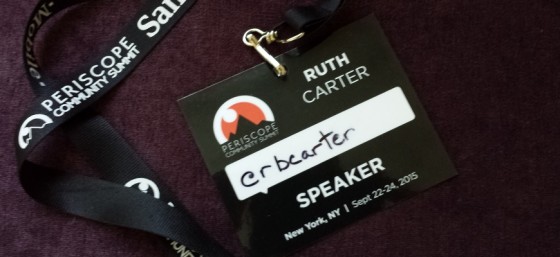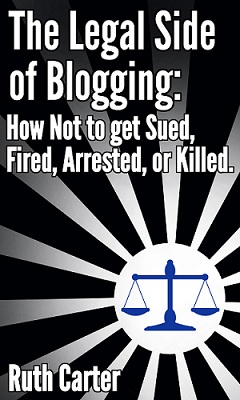I had the pleasure of being on a panel with Mitch Jackson to discuss the legalities of live-streaming video apps at the Periscope Community Summit last week in New York. We had a blast. Special thanks to the organizers of this event.
The Periscope user community is so friendly and accepting. I hope we’re invited back to the next Periscope Community Summit in San Francisco this winter. Here are some of the take-away lessons from our panel:
There is No “Undo” Button. Unlike other social media platforms where you can edit your work before you release it, Periscope videos are live. If you are someone who tends to embellish, be excessively emotional, or otherwise get carried away, perhaps you shouldn’t ‘scope without thinking your ideas through. Because once you put something out there, you can’t take it back and you may not be able to apologize your problems away.
It’s Probably Illegal to ‘Scope that Concert. Many artists don’t allow photos or videos during their shows. This also applies to Periscope and other live video apps. Ditto for professional sports. Read the back of your ticket carefully and be prepared to be kicked out if you do it.
Be Careful if you do Karaoke on your ‘Scope. It seems like a lot of people sing when they are on Periscope, whether they are singing to a backing track or along with a song. When you buy a CD or an mp3 of a song, you are usually making a purchase for individual use and enjoyment. If you play that song on Periscope, you’ve created a public performance, which usually requires a separate license. If you use Periscope to promote yourself as a musician and you’re doing covers, you should look into buying a license from the appropriate source like BMI or ASCAP.
Playing Clips with Commentary is Probably Ok. If you review books, music, movies, and/or video games on your ‘Scope and you want to play audio or video clips of whatever you’re reviewing, that’s likely permissible under the fair use provision of the Copyright Law. This is particularly true if you’re adding your original thoughts on the topic and you aren’t a substitute for the media you’re discussing.
A Word of Warning: Whoever owns the copyright in a work has the exclusive right to decide where and when the work will be copied, distributed, displayed, and performed. If they suspect that you are violating their rights on your ‘Scope, they will decide if and how they will lay the smack down on you for violating their rights. This could be anything from a cease and desist letter to a lawsuit in federal court.
As always, these are my two rules of thumb for staying out of trouble on the internet:
- Don’t post anything online that you wouldn’t put on the front page of the newspaper.
- Assume that everything you post or broadcast online will be seen by four people: your best friend, your worst enemy, your boss, and your mother. If you don’t want one of those people to see what you’re thinking about posting, don’t share it (regardless of your privacy settings).
If you want to know more about the legalities of streaming your life on the internet, please check out this post I wrote about the law and Periscope. If you want a resource that addresses the broader issues of how the law applies to all social media, please check out The Legal Side of Blogging: How Not to get Sued, Fired, Arrested, or Killed. If you want to chat with me about a specific question related to copyright or internet law, you can contact me directly or connect with me on Twitter, Facebook, YouTube, or LinkedIn.



